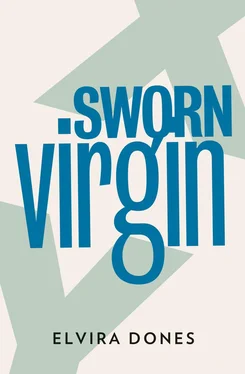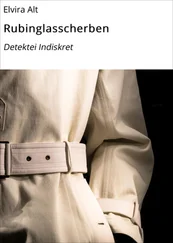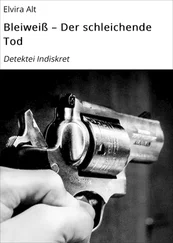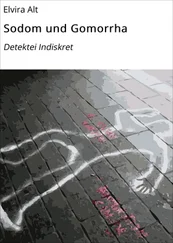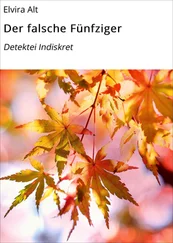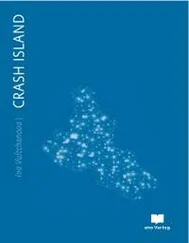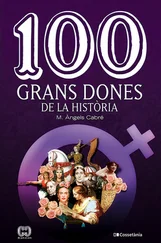‘Now I have another problem. See, Nanë ? You’ve come along at the wrong time.’
Everything is wrong. Even this summer, that seems like a wonderful painting but isn’t, if you look at it carefully. This summer looks more like a mediocre poem. Albanians write a lot of poetry, they’re crazy about poems, but they’re scared of telling stories. You need persistence to narrate a story, as well as discipline. Full sentences don’t allow you to cheat or be lazy. Poetry does: it’s more worldly-wise, more fleeting, more musical. Narration is for monks, inscribing manuscripts all day until they’re hunchbacks.
‘Don’t you see, Nanë ? I’ve got other things to think about. Go away!’
Hana waits until the memory of her mother fades. She can feel it shrinking fast, and then vanishing.
She feels lost.
She takes it out on her English dictionary with its blue, black, and yellow jacket. It’s called Hornby. Mr Hornby thinks he’s so great that he can teach you a language. She wonders whether the gentleman is still alive. Is he sad? Lonely? Ugly? She imagines him to be thin and bespectacled, not good-looking. With a pencil she scratches a picture of the imaginary Mr Hornby on the book jacket.
‘Serves you right,’ she says rancorously.
At the first light of dawn she sets off for Scutari and returns to Rrnajë late that night. Everything has gone well. She didn’t meet any wolves, and she has the drugs. When Uncle Gjergj sees she is back he looks at her with infinite love.
The driver that had given her a ride into the city was in his fifties and had no desire to make conversation.
‘So you’re Doda’s niece,’ he had said at the start of the journey. ‘I knew your dad. He was a good guy. How’s Gjergj?’
‘Sick.’
‘So I heard, I’m sorry.’
That had been the end of their exchange. The truck had gone so slowly that if Hana had walked beside it she wouldn’t have had to pick up her pace.
‘I do this trip once a month,’ the driver had said at the end of the journey. ‘If you want I’ll take you down every time. You know it’s dangerous, don’t you?’
Hana had nodded.
‘Has Gjergj arranged a marriage for you? Have you been promised since birth?’
‘No.’
‘Be careful, girl. And give my best to your uncle.’
Gjergj’s room smells stuffy. She changes his neck scarf, which is soaked with sweat. In the courtyard Enver is making a ruckus, bleating like crazy and kicking the door to his pen.
‘You see, it wasn’t so bad after all,’ Hana whispers to the old man. ‘The pharmacist was really kind and wrote down all the instructions for me.’
Gjergj gestures that he’s thirsty. She brings him water.
‘I have to feed the animals now, then I’m going to buy a little fresh cheese.’
Hana doesn’t know how to make cheese yet. She’ll have to learn. Aunt Katrina did everything; she can’t do very much.
‘You’re a good girl,’ Uncle Gjergj mutters. ‘Such a good girl, you’re my boy. You’re like a son; the things you’re doing are men’s jobs. Going off alone and coming back in the middle of the night across the mountains. You need the courage of a man to do those things.’
Hana laughs out loud, pleased with the compliment.
‘If you’d been born in the city you would have been a real ladies’ man, Uncle Gjergj.’
‘I am,’ he answers. ‘You have to go back to Tirana, get back to your studies. Have you forgotten?’
Hana answers that she can’t leave him in this condition and he says yes you can, what else can happen to him?
‘There’s no discussion, Uncle Gjergj. I’m not leaving you alone.’
‘It’s an order, Hana. I’m not asking you. I’m ordering you to go.’
Their short argument takes a long time. Uncle Gjergj loses his thread and smiles. He seems to take stock of every phrase and delays looking at his interlocutor until he has decided to expel his words, one after the other, slowly. Hana has learned to adapt to his rhythm.
‘Classes are over, Uncle Gjergj.’
‘But they start again in September, right?’
‘Why should I go back? I’m not going back to school, it’s not worth it at this point …’
He starts moving, as if he wants to get up, and then looks at his stick but can’t reach it.
‘Ok. I’ll go to Tirana,’ she eventually concedes.
‘Go to the student office and make all the necessary arrangements to enroll again in September.’
She sets off, leaving her uncle to the sporadic care of the village nurse. She gets a ride with the agronomist from the cooperative, who is taking a jeep down to the city for an important meeting. She gets a train from Scutari, which breaks down in Lezhë, so she has to wait for whatever ride she can find.
She gets to Tirana at nightfall. It is hot, the roads smell of melted asphalt. The center of the capital city is dark. In order to save what little power there is, they don’t turn the streetlights on. She’s happy to walk along the clean streets, wending her way to her dorm. It is almost empty, as most of the students are home for the summer vacation.
Hana has the room to herself. She goes to bed and sleeps soundly.
The next morning the Liberal Arts Faculty is deserted. The heat is overpowering. The bad-tempered secretary gives a highly acid, ‘What do you want?’
‘I’ve come to say that I’d like to do my last exam in August.’
‘Who said you could?’
‘I’m a student in this Faculty.’
‘Who didn’t take her exam and disappeared from the face of this earth without any justification.’
‘My mother died, Comrade Secretary.’
‘How many mothers have you got? One seems to die every year.’
Hana stares at her reflection in the glass pane of a cupboard. She thinks she looks quite pretty, in a blue and red checked shirt with two big pockets. She shifts her attention back to the secretary.
‘My aunt, who became my mother after my parents died in a car accident many years ago, she died. And my uncle, her husband, is very sick with cancer. He’s all I have left.’
The woman tries to look sorry, but fails. All she can do is tone down her sarcasm.
‘You could have come and asked permission.’
‘I didn’t have time. I asked my classmates to do it.’
‘That’s not sufficient, young lady. The trouble with you mountain people is that you never learn to obey rules.’
Hana looks back at herself in the glass and adjusts her curly hair. She directs a faint smile at the perfumed hyena who, in the meantime, has improved the color of her hair-dye.
She is suddenly seized by the thought that she has to go to the sea. She leaves the office before the secretary can open her mouth again.
It is Friday.
The sea is majestic, polished and shimmering like a perfect dream. Nothing detracts from its immensity, neither the garbage rotting on the beach nor the ungainliness of the few bathing costumes on show.
She has found a quiet spot near Durrës. There are only two families with kids. She looks around, then closes her eyes and tries to empty her mind of thoughts. She only partly succeeds. Her demons are still there, but they are polite and almost harmless now. They smile at her.
The sand burns her feet. She has thrown her deformed shoes under a rock and tied her hair in a ponytail.
She steps into the water in her pants and shirt, with all the money she has in her pocket. She can’t afford to have it stolen because it’s her return fare to Tirana. The folded bill will enjoy a swim in the sea. The salt will fix the color of her black pants. The water will wash the smell of dung out of her shirt.
The salt is drying on her skin and the tightening sensation forces her back to the here and now. She’ll be taking this salt home with her, for she has no change of clothes. They will dry off and she’ll be fine. She’ll be fine, she says. And she really is fine, for the three hours she’s at the beach.
Читать дальше
